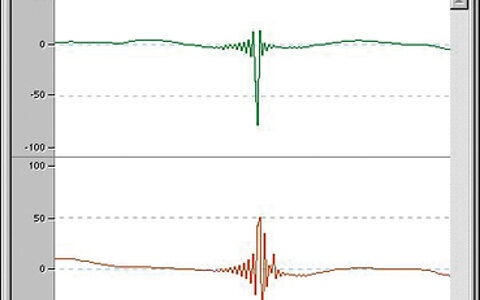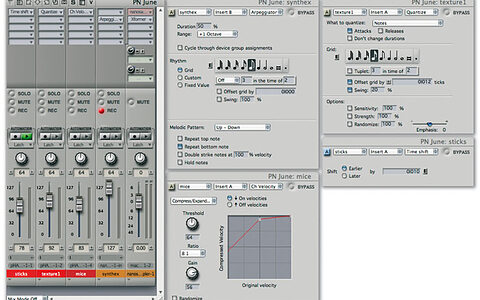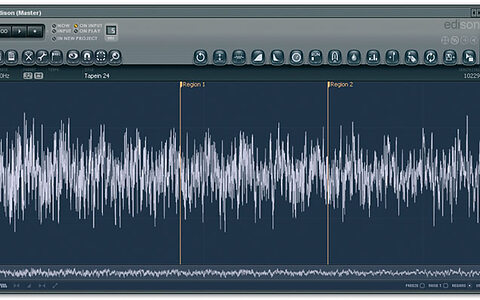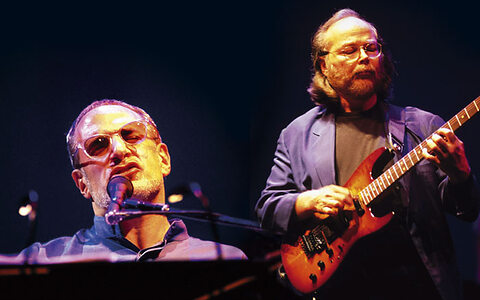
Computer Hassles
Martin Walker has had more than his fair share of computer hassles recently, including exploding monitors, audio glitches, and the mysterious death of Word...
To find the exact phrase, put the words in quotes or join them together with a plus sign e.g. live+recording or "live recording".
To find, say, all live recording articles that mention Avid, enter: live+recording +avid - and use sidebar filters to narrow down searches further.

Martin Walker has had more than his fair share of computer hassles recently, including exploding monitors, audio glitches, and the mysterious death of Word...

Virtual analogue plug‑in synths are now common, and as DX‑style FM was the next great leap forward for real synths, a virtual FM synth was only a matter of time. So how does FM7 measure up to the original DX?

The Roland RS202 and Multivox MS202 are two classic string synthesizers that seem to share more than a passing physical and sonic resemblance. We investigate the machines and the myths, and solve the mystery once and for all.

We show you that if you put enough effort into the musical arrangement and get the editing out of the way at the start, the mix itself isn't that difficult!


Roalnd's D50 became the sound of the late '80s. Does it still have a place in the late '90s? Paul Ward takes a trip around LA...

This American classical composer writes rock songs as well as concertos and has a home studio complete with contemporary synths and a computer-based sequencer. Paul Tingen talks to him about the best of both worlds.

Panicos Georghiades and Gabriel Jacobs put Steinberg's new budget 'MIDI-plus-audio' sequencer for Windows through its paces.

This month: Funk University; Koncept & Funktion; Chopped Guitars; Downtempo Guitars Volume 2 and Talkbox Guitar.

Learn how to choose and use on-stage speaker or headphone monitoring systems. After all, if you can't hear what you're doing, then your live performances are going to suffer.

When the Korg Trinity was launched more than a year ago, the list of expansions it would be able to host seemed too good to be true. Now they're all finally available, Paul Wiffen takes stock of the options.

MIDI plug-ins are often overlooked, regarded perhaps as the poor relations of the more glamorous audio type, but they can give you real power-user status if you take the trouble to investigate their capabilities.

The latest version of Image Line's affordable FL Studio music software adds a powerful resampling editor and processor, plus some neat plug-ins.


When different parts compete in a mix, it isn't always easy to decide what's most important. We take you through some strategies to achieve better separation of parts for a clutter-free mix.

Whether you're acclimatising to a new room or speakers, or seeking benchmarks for your mix, a CD of good reference material is an indispensable tool — and it pays to think hard about what you put on it.

Another group of Music Producers Guild members proffer their constructive comments on the recordings of more SOS readers...

Event up their game once again with their best-ever design for project-studio monitoring. But have they come far enough to continue to face off the competition?

This year's Frankfurt MusiKmesse was virtually stuffed with digital synths in analogue clothing. Martin Russ takes an exclusive first look at Yamaha's eagerly awaited entry in the 'analogue for the '90s' stakes, the AN1X.

When Steely Dan ended a 20-year hiatus with 2000's Two Against Nature, they took full advantage of today's digital recording tools. For their new album Everything Must Go, however, they've returned to analogue tape and live band recording. Paul Tingen reports...